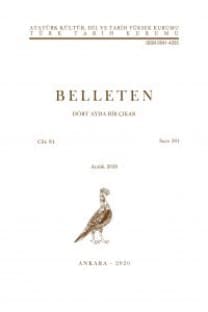Tarihçi ve Düşünür Enver Ziya Karal (1906-1982)
1906 yılında Kosova'da doğan ve 18 Ocak 1982 tarihinde, ölüm denilen doğal bir nedenle, kendisinin "Ebedi uyku" 2 diye nitelendirdiği bir sonsuzluğa göç eden Enver Ziya Karal, seçkin bir bilim adamı ve Atatürkçü kişiliği, yetiştirdiği çok sayıda değerli insanlar, yayınladığı büyük yapıtları ve açıkladığı özgün düşünceleri ile toplumumuzca her zaman saygıyla anılacaktır. Ölümünden sonra bunu doğrulayan bir olay, Türk Eğitim Derneği'nin 1982 yılı "Eğitim Hizmet Ödülü'nün E. Z. Karal'a verilmesidir. Ord. Prof. Enver Ziya Karal, yaşamının büyük bir dönemini, Üniversite Öğretim Üyesi, Dekanı ve Rektörü olarak önemli ve verimli hizmetleriyle doldurduğu içindir ki, kendisini, kıymetli bir meslektaşının, Prof. Dr. Tarık Zafer Tunaya'nın "Hocaların Hocası" diye nitelendirmesi, Karal'ın bir yaşam gerçeğini belirtmektedir. Enver Ziya Karal, tarihçi, eğitimci ve düşünür kişiliğiyle, eğitimin gerçek içerik ve amacını, "Eğitim, yalnız okuyup yazmayı öğrenmek değil, özgür düşünceye erebilmektir" diyerek özdeyiş biçiminde açıklamıştır.
Anahtar Kelimeler:
Enver Ziya Karal, Tarihçi, 1906-1982, Biyografi
— Summary — Two Inscriptions from Ilgaz (Olgassys), and Kimiatene
These inscriptions were found at the village of Kurmalar in the distriction of Ilgaz at the province Çankırı (ancient Gangra). A Dedication To the Great Gods of Stoa Buildings and Oikema etc. Limestone; the bottom part of this cilindiric inscription which has 12 lines is broken. H. 0,50 m. Diamet. 0,35 m. The hight of letters: 0,02 m. These are suggestive of the late third century or the beginning of the second century B.C. The Stoas are the most important buildings of the Agora, that is market places of ancient cities. The stoas, according to J. J. Coulton, show the the wealth and the magnificance of an ancient city. At the same time these enourmous buildings could be taken the pledge to pay the depts of cities to anothers. We think that this inscriptions must indicate a new construction and not a repairing phase of the same building. Because, the repairing inscriptions, to J. J. Coulton again, have been generally written after the first century B.C. in which there were the most troublous years of Asia Minor.
Keywords:
Ilgaz Olgassys, Inscription, Stoa, Greek,
- ISSN: 0041-4255
- Yayın Aralığı: Yılda 3 Sayı
- Başlangıç: 1937
- Yayıncı: Türk Tarih Kurumu
Sayıdaki Diğer Makaleler
Kuzey Moğolistan'da Yeni Bir Uygur Anıtı : Taryat (Terhin) Kitabesi
I. Murad'ın Sikkelerine Genel Bir Bakış 761-792 (1359-1389)
Tarihçi ve Düşünür Enver Ziya Karal (1906-1982)
Bir Kitap ve Bir Eleştiri Üzerine Adlı Yazıya Cevap
Berlin Diez Albümlerindeki Bazı Dağınık Câmi' El-Tevâ'rikh Minyatürleri Üzerine
